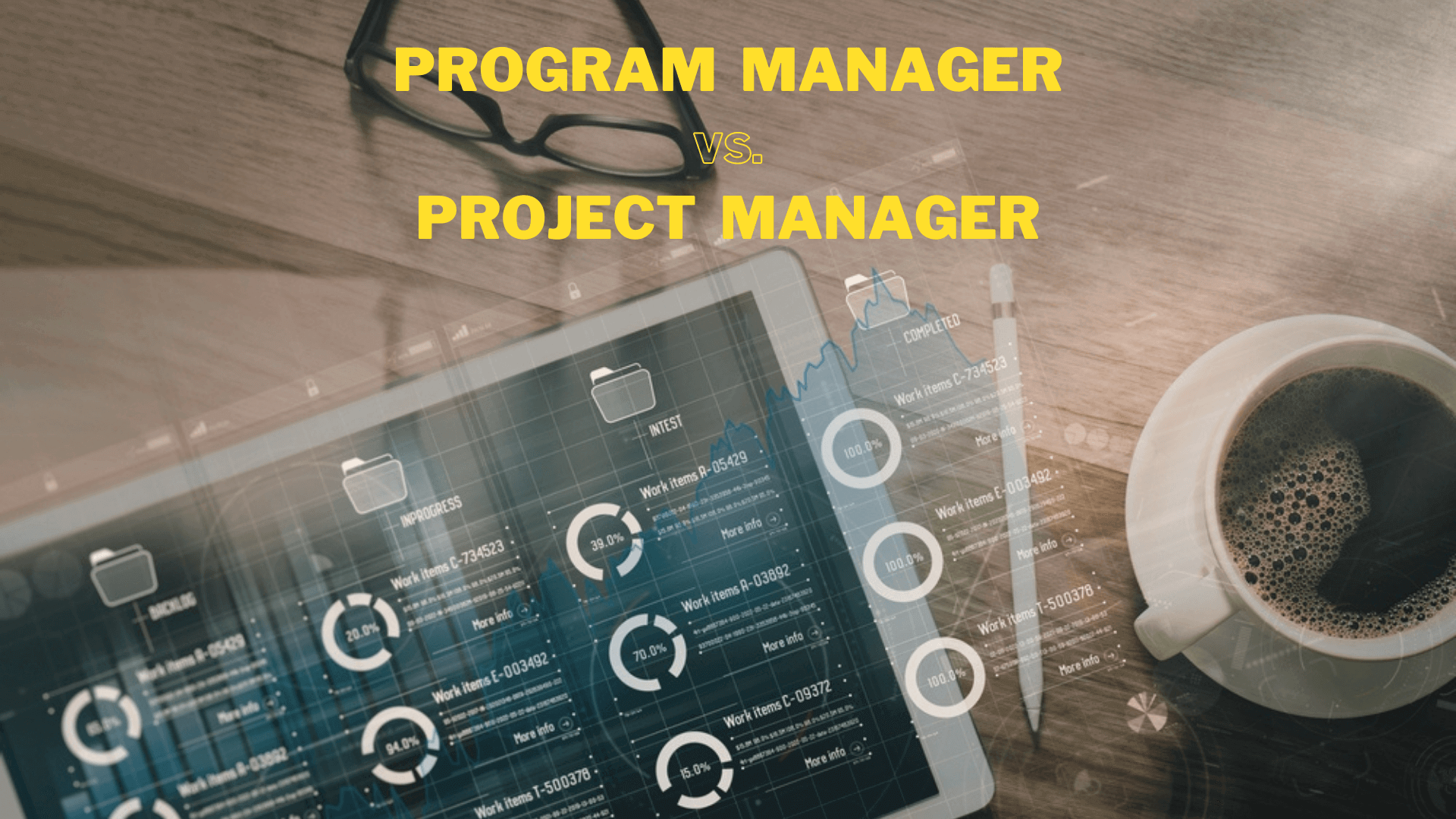Organizations must complete an array of projects within the estimated budget and schedule. A project manager oversees the management of a single project, while a program manager oversees the management of multiple related projects for their organization. This is essentially the key difference between a program manager vs project manager. Although, in several organizations, these roles are often used interchangeably for some valid reasons like lack of proper resources, size of the organization, and poor project management practices. However, the roles and responsibilities of a program manager are completely different from that of a project manager in an organization. To establish the difference between a program manager and a project manager, we must first understand their respective roles and responsibilities.

Jump ahead to
Roles and Responsibilities of a Project Manager
A project manager is a knowledgeable and skilled professional who ensures the successful delivery of an individual project for their organization. They are excellent leaders and communicate with the project’s stakeholders to meet the project objective. Project managers are responsible for creating the project plan and leading their project management team to the finish line. These professionals are proficient in the project management methodology and guide their teams to follow project management principles.
The roles and responsibilities of a Project Manager in an organization are:
- Understand the project objective and create the project plan.
- Design the project scope and assign project resources.
- Lead the project management team and address problems.
- Communicate and collaborate with the stakeholders as well as the program manager of the organization to ensure the fulfilment of the project goals.
Roles and Responsibilities of a Program Manager
A program manager oversees the operations of multiple projects in an organization whose processes are often similar. The program manager roles are usually well-defined in large organizations and business enterprises where multiple projects are conducted simultaneously on a regular basis. Program managers are knowledgeable and skilled project management professionals with years of experience working as project managers. So, these professionals have proven their expertise in successfully managing and delivering projects for their organizations.
Here are the roles and responsibilities of a Program Manager in an organization:
- Understand the objectives of the organization and define the project goals.
- Communicate with the stakeholders of the organization and the project managers to establish the alignment of the project objectives with the organizational goals.
- Plan project scope, schedules, and project budget with project managers.
- Ensure that the project goals are fulfilled by maintaining an active communication channel with all the project managers.
Program Manager vs Project Manager
Now that we have established the roles and responsibilities of a program manager and a project manager, we can outline the key differences between the two project management roles. These are as follows:
- A project manager is responsible for overseeing the successful delivery of a specific project for the organization. Whereas a program manager manages multiple related projects, collectively known as a program, in an organization.
- Program managers ensure that the objectives of the organization are attained, while project managers ensure that the project objectives are achieved.
- A program manager has more responsibilities than a project manager as they ensure the alignment of each project objective of the program with the business goals. They allow proper communication and collaboration between cross-functional teams.
- While projects have a fixed end date, a program is ongoing and sometimes takes years to end. So, project managers can finish one project and move to the next, but a program manager can only leave the program only after completing all the projects in the program .
Career Path of Program Managers and Project Managers
From the above-mentioned differences, the roles and responsibilities of a program manager are larger than those of a project manager. The Project Management Institute (PMI), which is the premier project management governing body in the world, offers the Program Management Professional (PgMP) Certification and the PMP (Project Management Professional) Certification to aspiring program managers and project managers, respectively. Organization can only achieve program management with project management, aspiring program managers must have validation of their knowledge and experience as project managers to become eligible for the prestigious PgMP Certification.
PgMP vs PMP
The PMP Certification is PMI’s most widely acquired credential in project management, with a large community of PMP-certified professionals around the world. Though the numbers are not similar for PMI’s PgMP certified professionals, this is mainly because of the difficult and lengthy eligibility process to acquire this valuable credential. Project managers who want to take more responsibilities in their organization and work as program managers need to fulfill the education and experience requirement outlined by PMI. A PgMP-certified professional will be valuable for the program management of an organization. They can ensure that the organizational goals are achieved in the long run by maintaining the successful delivery of multiple projects in the program.
Conclusion
Both PgMP and PMP certified professionals have higher salaries than their non-certified counterparts. A PMP-certified project manager earns around $107778 on average per year, whereas for a PgMP-certified professional, it is around $113124 in the US alone, according to the popular job and salary information website Ziprecruiter.com as of January 2022. Organizations always look for certified and experienced project management professionals to oversee their program and project management processes. Therefore, investing your time and effort to get certified with these valuable certifications will always be beneficial for individuals and professionals aspiring to work in the project management industry. This can be achieved with the help of verified training providers, which will prepare project management aspirants in earning the PMP Certification and PgMP Certification. Earn these prestigious credentials and transform your organisation’s project management and program management processes.
FAQs
What is the primary difference between a Project and Programme Manager?
While the Project Managers focus on delivering specific outcomes within a defined timeframe the Programme Managers oversee multiple related projects.
Why is continuous learning important for Project and Programme Managers?
As the project management realm is continuously evolving with technological advancements and changes, continuous learning is essential to stay updated.
How will AI impact Project and Programme Managers in 2025?
AI is expected to automate routine tasks and improve decision making allowing Project and Programme Managers to focus more on strategic planning.
What role does Project and Programme Management Certification play in a professional’s career?
Project and Programme Manage Certification plays a crucial role in validating expertise, enhancing credibility, and making professionals adept with technological advancements and trends making them more valuable candidates for employers.
Can AI lead to negative outcomes for Project and Programme Managers?
The overreliance on AI may result in reduced critical thinking and potential misalignment with AI-driven insights and actual-world applications.
What are additional certifications that Project and Programme Managers can procure to advance in their careers?
Project and Programme Managers can pursue certifications like Project Management Professional(PMP) and Agile certifications to deepen their expertise.
How can businesses maximize the effectiveness of Project and Programme Managers?
Firstly. Organizations should understand the distinct value of both roles. Then, they can invest in the continuous learning of professionals and leverage AI technologies to advance the efficiency of Project and Programme Managers.



